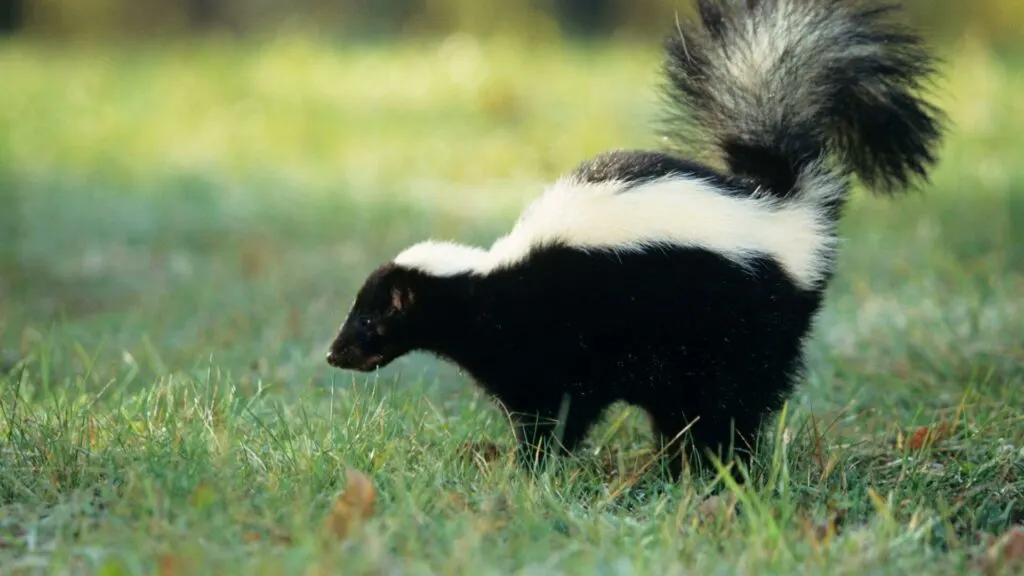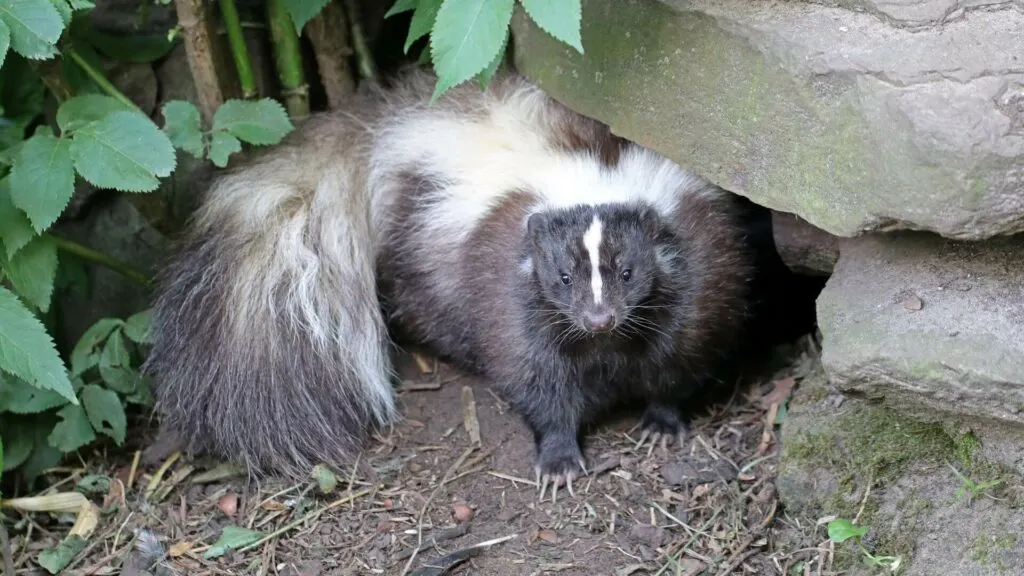Skunks, with their iconic black and white fur and notorious scent, are more than just olfactory nuisances. Beyond their pungent spray, these creatures can pose significant threats to the environment, especially in residential areas. In this blog post, we delve into the broader implications of skunk presence in home environments, shedding light on the potential dangers they bring.
From the damage caused to gardens and lawns to the risks of transmitting diseases, understanding the multifaceted impact of skunks is crucial for homeowners. We’ll also explore effective strategies and preventative measures to safeguard your surroundings, offering insights into coexisting with these creatures without compromising the well-being of your home and its inhabitants. By delving beyond the surface, we aim to provide a comprehensive understanding of the challenges posed by skunks and empower readers with practical solutions for harmonious cohabitation.

Calling Professional Services
The safest and most effective solution for skunk infestations is to call professional animal removal services. Trained skunk removal experts have the necessary equipment and experience to safely remove skunks from your property. They also offer humane methods of removal, ensuring that the animals are relocated instead of harmed.
Understanding Skunks and Their Behavior
Before delving into the impact of skunks on home environments, it’s important to understand these creatures and their behavior. Skunks are nocturnal mammals that are native to North America. They have excellent hearing and sense of smell, but poor eyesight. Their main defense mechanism is their potent spray, which they use to fend off predators.
Skunks are omnivorous creatures, meaning they eat both plants and animals. They’re opportunistic feeders and will often scavenge for food in trash cans or gardens. They also tend to burrow underground, creating dens for shelter and raising their young.
Skunks as Pests
While skunks may seem harmless, they can cause a lot of damage to home environments. One of the main issues with skunks is their tendency to dig and burrow. This can be particularly problematic for lawns and gardens, as skunks will often dig up plants and flowers in search of food.
In addition, skunks are notorious for raiding trash cans in search of food. This can create a mess and attract other pests, such as raccoons and rats. Skunks are also known to cause damage to property by digging under decks, sheds, and even foundations.
Health Risks
Apart from the physical damage they can cause, skunks also pose health risks to humans and their pets. Their spray contains compounds called thiols which have a strong odor and can irritate the eyes, nose, and throat. In some cases, this smell can linger for weeks and be difficult to get rid of.
Skunks are also known carriers of diseases such as rabies, leptospirosis, and distemper. When these diseases are transmitted to pets or humans, it can have serious consequences. Therefore, it’s important to take precautions to avoid coming into contact with skunks and their spray.
Protecting Your Home Environment
Now that we understand the potential dangers of skunks, here are some ways to protect your home environment from their impact:
- Secure trash cans: Make sure your trash cans have tight-fitting lids and can’t easily be knocked over by animals. If possible, store them in a closed-off area such as a garage or shed.
- Seal off potential entry points: Skunks can squeeze through small openings, so it’s important to seal off any potential entry points around your home. This includes gaps under decks and sheds, as well as holes in fences and foundations.
- Use natural deterrents: There are several natural ways to deter skunks from your property, such as using strong smells like ammonia or hot peppers. You can also install motion-activated sprinklers to startle and repel them.
- Avoid leaving out pet food: Skunks are attracted to pet food, so it’s important not to leave any out where they can access it. Instead, feed your pets indoors and remove any leftover food promptly.

In conclusion, while skunks may seem like harmless creatures, they can have a significant impact on home environments. From causing physical damage to posing health risks, it’s important to take preventative measures to protect your surroundings. By understanding their behavior and implementing the tips mentioned in this blog post, you can keep your home environment safe from the potential dangers of skunks. So next time you come across a skunk, remember to unmask the true danger they can pose to your home. So rather than thinking of them as just smelly animals, it’s important to take necessary precautions to keep them at bay. With these tips in mind, you can enjoy a skunk-free and safe home environment. So let’s do our part in unmasking the danger of skunks and protecting our homes. Happy living!

Jessi is the creative mind behind The Coffee Mom, a popular blog that combines parenting advice, travel tips, and a love for all things Disney. As a trusted Disney influencer and passionate storyteller, Jessi’s authentic insights and relatable content resonate with readers worldwide.
